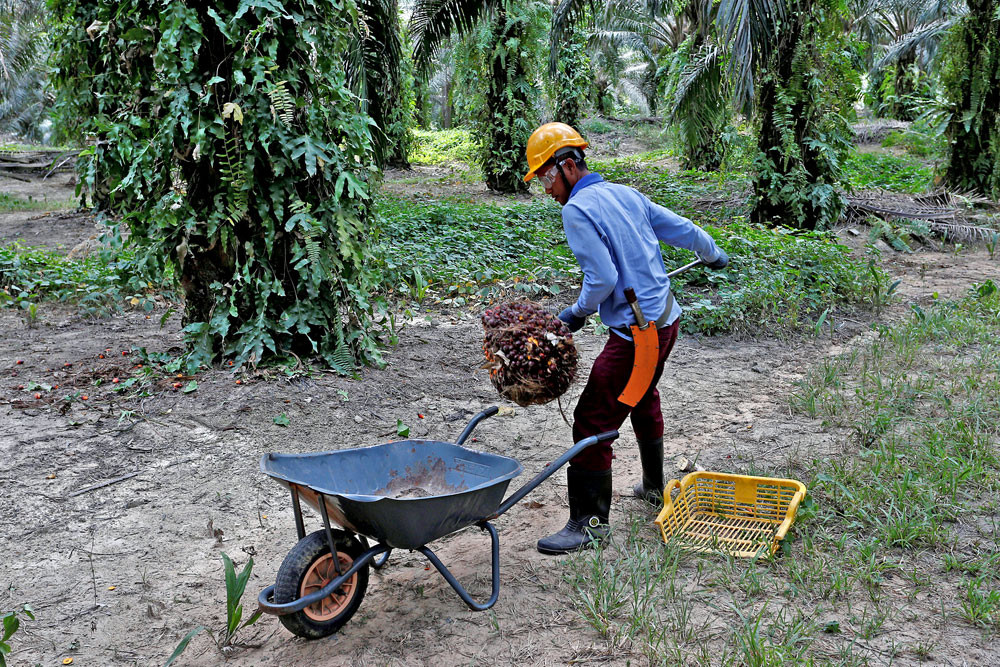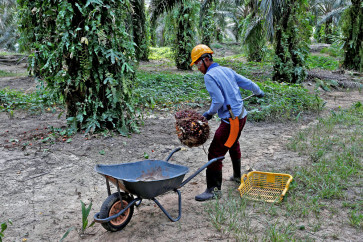Popular Reads
Top Results
Can't find what you're looking for?
View all search resultsPopular Reads
Top Results
Can't find what you're looking for?
View all search resultsIndonesia looks to strengthen palm oil industry through ISPO, domestic market
The EU is Indonesia’s second-largest importer of palm oil after India, with the former having purchased 4.78 million tons in 2018.
Change text size
Gift Premium Articles
to Anyone
I
ndonesia is set to strengthen its palm oil industry by encouraging stakeholders to comply with Indonesia Sustainable Palm Oil (ISPO) certification and strengthening the domestic market to anticipate lower demand from the European Union.
The ISPO certification could help the country’s palm oil sector in combatting negative campaigns, Vice President Ma’ruf Amin said during his remarks at the International Palm Oil Conference 2019 in Nusa Dua, Bali on Oct. 31.
“We are hoping that through the ISPO, we can reduce negative sentiments about Indonesian palm oil. The campaign to put an end to misunderstandings about palm oil should be enhanced,” said the Vice President in Bali on Thursday.
The ISPO is a government certification scheme issued under a ministerial regulation and as such is legally binding, with all palm oil producers in Indonesia obliged to follow it. The content of ISPO is, in essence, a compilation of all government regulations applied to oil palm plantations such as the legality of plantation businesses and the protection of peatland and natural forests.
The government is encouraging stakeholders, including companies and smallholders, to comply with the ISPO to ensure the sustainability of local products. As of the third quarter, 566 companies had acquired the ISPO certificate covering more than 5 million hectares of plantations.
It has agreed to bear the costs incurred by smallholders in obtaining certification so that they can ensure good agriculture practices in their oil palm plantations and assure foreign buyers that all the palm oil exports meet environmental standards.
Palm oil, Indonesia’s top export commodity, has been facing challenges from abroad as the European Commission decided in March to completely phase out the use of biofuel by 2030, considering palm oil, one of the biofuel components, as high-risk vegetable oil due to deforestation concerns.


















